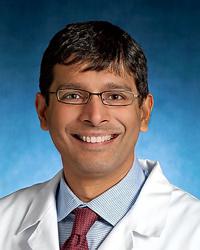Research Lab Results
-
Laboratory of Airway Immunity
We are interested in understanding how innate immune responses regulate lung health. Innate immunity involves ancient, and well-conserved mediators and their actions regulate the balance between homeostasis and pathogenesis. In the lungs, innate immunity play a critical role in response to environmental exposures such as allergen and ambient particulate matter. My lab focuses on how these exposures can promote aberrant mucosal responses that can drive the development of diseases like asthma.
-
Wang Lab
Our laboratory is interested in understanding the neural basis of auditory perception and vocal communication in a naturalistic environment. We are interested in revealing neural coding mechanisms operating in the cerebral cortex and how cortical representations of biologically important sounds emerge through development and learning. -
Nadia Hansel Lab
Research in the Nadia Hansel Lab investigates the clinical, pathophysiologic and public health aspects of pulmonary diseases, with a focus on asthma and chronic obstructive pulmonary disease (COPD). We have explored how environmental exposures, nutrition and diet, comorbidity and other factors influence the outcomes of diseases such as asthma and COPD.
-
Marie-France Penet Lab
The Penet lab is within the Division of Cancer Imaging Research in the Department of Radiology and Radiological Science. The lab research focuses on using multimodal imaging techniques to better understand the microenvironment and improve cancer early detection, especially in ovarian cancer. By combining MRI, MRS and optical imaging, we are studying the tumor microenvironment to understand the role of hypoxia, tumor vascularization, macromolecular transport and tumor metabolism in tumor progression, metastasis and ascites formation in orthotopic models of cancer. We also are studying the role of tumor-associated macrophages in tumor progression. -
Tamara O'Connor Lab
The O'Connor Lab studies the molecular basis of infectious disease using Legionella pneumophila pathogenesis as a model system. We are looking at the network of molecular interactions acting at the host-pathogen interface. Specifically, we use L. pneumophila pathogenesis to examine the numerous mechanisms by which an intracellular bacterial pathogen can establish infection, how it exploits host cell machinery to accomplish this, and how individual proteins and their component pathways coordinately contribute to disease. We are also studying the role of environmental hosts in the evolution of human pathogens. Using genetics and functional genomics, we compare and contrast the repertoires of virulence proteins required for growth in a broad assortment of hosts, how the network of molecular interactions differs between hosts, and the mechanisms by which L. pneumophila copes with this variation.
-
Stivers Lab
The Stivers Lab is broadly interested in the biology of the RNA base uracil when it is present in DNA. Our work involves structural and biophysical studies of uracil recognition by DNA repair enzymes, the central role of uracil in adapative and innate immunity, and the function of uracil in antifolate and fluoropyrimidine chemotherapy. We use a wide breadth of structural, chemical, genetic and biophysical approaches that provide a fundamental understanding of molecular function. Our long-range goal is to use this understanding to design novel small molecules that alter biological pathways within a cellular environment. One approach we are developing is the high-throughput synthesis and screening of small molecule libraries directed at important targets in cancer and HIV-1 pathogenesis. -
Safety and Functionality Eye Research (SAFER)
The SAFER lab is studying how the home environment affects a person’s fall risk and functionality at home. -
Rahul Koka Lab
Research in the Rahul Koka Lab focuses on pediatric airways, patient safety and health disparities. Recent studies have focused on the relationship between socioeconomic status and perioperative outcomes and patient safety factors related to interoperative cardiac arrests. We also performed effects analyses of the maintenance and repair of anesthetic equipment in various medical environments. -
Robert Anders Lab
Dr. Anders’ laboratory focuses on the basic processes that lead to cancer. His team approaches these questions through the use of both experimental models and examination of human tissues. His team is specifically interested in interrogating the immune microenvironment of cancer, detecting circulating cancer cells and preventing cancer metastasis. -
Grant (Xuguang) Tao Lab
Research in the Grant (Xuguang) Tao Lab explores environmental and occupational epidemiology topics, including workers' compensation and injuries, and nosocomial infections. We conduct research through clinical trials and systematic literature reviews, and also use cancer registry data and GIS applications in environmental epidemiological research. Our recent studies have explored topics such as the effectiveness of lumbar epidural steroid injections following lumbar surgery, the effect of physician-dispensed medication on workers' compensation claim outcomes and how the use of opioid and psychotropic medications for workers' compensation claims impacts lost work time.






